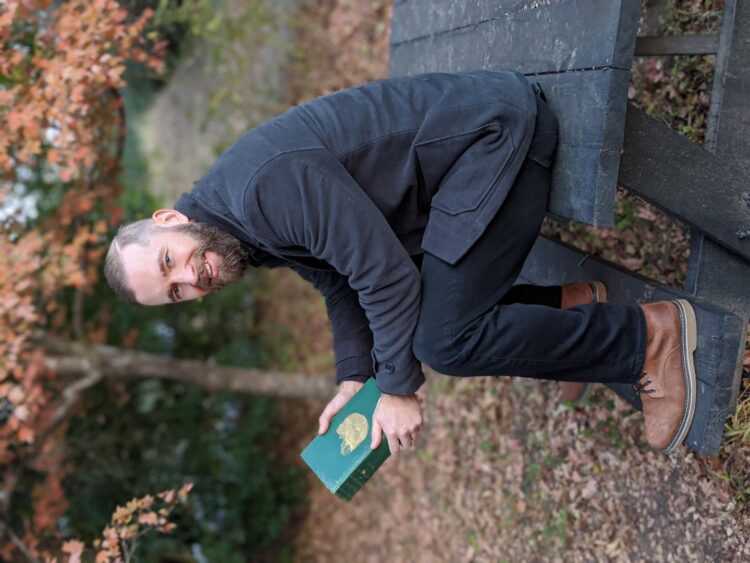
Credit: LE Gilbert
A link between evolution over short time frames (microevolution) and long time frames (macroevolution) that could open new approaches to understanding some of biology’s deepest questions is proposed by Dr Owen Gilbert of the Department of Integrative Biology at the University of Texas at Austin (USA) in a new paper, published in the open-access, peer-reviewed journal Rethinking Ecology.
In his work, Gilbert suggests that there is an alternative non-random force of evolution, which acts synergistically with natural selection and leads to the increased innovativeness, or advancement, of life with time. The novel concept complements Darwin’s theory of evolution and addresses the questions it has left unanswered.
“This could solve the mystery of why life has become more innovative with time,” points out Gilbert.
Rather than assume that natural selection applies to long-preserved units like species or clades, or that natural selection works for the long-term goal of “fitness maximization,” Gilbert reworked the foundations of evolutionary theory to show that there is room for another non-random force of evolution, natural reward.
Gilbert distinguishes the genetic units and time frames of long-term evolution. Whereas natural selection alters gene frequencies within species, Gilbert argues, natural reward alters the total abundance of entire genetic systems, including genetic codes, gene networks, and genetic regulatory modules shared by species and higher taxa. Gilbert proposes that natural reward also applies to cycles of invention, expansion and extinction, which happen over thousands to millions of generations, and which, when repeated, extend into deep evolutionary time.
“All previous theories of macroevolution assumed that natural selection is the only non-random force,” Gilbert said. “This meant that researchers had to either extrapolate from microevolution to macroevolution, or assign foresight to natural selection–which everyone knows is an adulteration of the theory.”
“A main advantage of invoking natural reward as a separate force is that it means natural selection can be used to explain the stepwise origin of complex traits, without assigning omniscience to natural selection.” Forming an analogy to economics, Gilbert argues that natural selection plays the role of nature’s blind inventor, creating complex “inventions” without an eye to the broader market, while natural reward acts as nature’s blind entrepreneur, spreading complex inventions to the markets or environments that immediately demand them.
“With this framework, it becomes possible to clearly separate problems of origin and success, which have long been muddled,” Gilbert said. “The result is new insights on major problems of biology.”
In the light of the natural reward theory, Gilbert reviews questions of the evolution of evolvability, why sexual reproduction is widespread, the fixation of a single genetic code, and the factors causing apparently sudden bursts of evolutionary change. Gilbert also investigates the question of whether the mammalian replacement of dinosaurs may be considered an advancement of life, culminating with a brief review of the cause of success of human economic systems.
“Only time will tell if the theory of natural reward is correct,” Gilbert said. “Existing data show, however, that its main assumptions are justified and that the theory holds promise in yielding new insights on major biological problems.”
In his conclusion, Gilbert summarizes the main implication of the natural reward theory, “… advancement is explained as an expected outcome of two deterministic evolutionary forces, natural selection and natural reward, acting together without foresight for the future.”
###
Original source:
Gilbert OM (2020) Natural reward drives the advancement of life. Rethinking Ecology 5: 1-35. https:/
Visit Dr Owen Gilbert’s blog “Success of the Innovative” at https:/
Media Contact
Owen M. Gilbert, Ph. D, The University of Texas at Austin
[email protected]
Related Journal Article
http://dx.
https://scienmag.com/natural-reward-theory-could-provide-new-foundation-for-biology/





